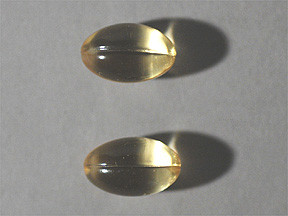VITAMIN A - ORAL
PHONETIC PRONUNCIATION:
COMMON BRAND NAME(S): Aquasol A
GENERIC NAME(S): vitamin A
Uses
USES: Vitamin A is used to prevent or treat low levels of the vitamin in people who do not get enough of it from their diets. Most people who eat a normal diet do not need extra vitamin A. However, some conditions (such as protein deficiency, diabetes, hyperthyroidism, liver/pancreas problems) can cause low levels of vitamin A. Vitamin A plays an important role in the body. It is needed for growth and bone development and to maintain the health of the skin and eyesight. Low levels of vitamin A may cause vision problems (such as night blindness) and permanent eye damage.
How to use VITAMIN A - ORAL
HOW TO USE: Take this vitamin by mouth with or without food, usually once daily. Follow all directions on the product package, or take as directed by your doctor. If you are uncertain about any of the information, consult your doctor or pharmacist. If you are using the liquid form of this medication, carefully measure the dose using a special measuring device/spoon. Do not use a household spoon because you may not get the correct dose. Dosage is based on your age, medical condition, and response to treatment. Use this vitamin regularly to get the most benefit from it. To help you remember, take it at the same time each day. Do not increase your dose or use this vitamin more often than recommended. Your condition will not improve any faster, and your risk of side effects will increase. Tell your doctor if your condition persists or worsens. If you think you may have a serious medical problem, seek immediate medical attention.
Side Effects
Precautions
Interactions
Overdose
Images

- color
- light yellow
- shape
- oblong
- imprint
Reviews
Faq for VITAMIN A - ORAL
Vitamin A is a fat-soluble vitamin that plays a crucial role in maintaining healthy vision, immune function, and cellular communication.
Vitamin A can be obtained from both animal and plant sources. Some excellent sources of vitamin A include liver, cod liver oil, salmon, dairy products (milk, cheese), eggs, carrots, spinach, sweet potatoes, and mangoes.
Vitamin A supports vision by helping the retina of the eye absorb and process light. It also plays a vital role in maintaining a healthy immune system, promoting cell growth and differentiation, supporting reproductive health, and maintaining healthy skin.
The recommended daily allowance (RDA) for vitamin A varies based on age and gender. For adult males, it is 900 micrograms (mcg) per day, and for adult females, it is 700 mcg per day. Pregnant and lactating women may need higher amounts, and individual needs should be discussed with a healthcare provider.
Vitamin A deficiency can lead to night blindness, dry skin, weakened immune function, slow wound healing, and, in severe cases, can increase the risk of infections and blindness.
Yes, consuming excessive amounts of vitamin A can lead to toxicity, known as hypervitaminosis A. It can cause symptoms such as nausea, dizziness, hair loss, bone pain, and in severe cases, liver damage. It is important to follow the recommended daily intake guidelines and consult with a healthcare provider before taking high-dose vitamin A supplements.
In general, it is safe to take vitamin A supplements if they are taken as recommended by a healthcare provider. However, excessive vitamin A supplementation can lead to toxicity. It is important to consult with a healthcare professional before starting any supplements, especially if you have certain medical conditions or are taking medications.
Vitamin A plays a role in maintaining healthy skin, and some forms of vitamin A (such as retinoids) are used topically or orally to treat acne and improve skin health. However, it is crucial to use these treatments under the guidance of a dermatologist or healthcare professional.
Vitamin A deficiency is a leading cause of preventable blindness in developing countries. Adequate vitamin A intake helps maintain healthy vision and may prevent certain eye conditions. However, if you have existing vision problems, it is important to consult with an eye specialist for appropriate evaluation and treatment.
Disclaimer
IMPORTANT: HOW TO USE THIS INFORMATION: This is a summary and does NOT have all possible information about this product. This information does not assure that this product is safe, effective, or appropriate for you. This information is not individual medical advice and does not substitute for the advice of your health care professional. Always ask your health care professional for complete information about this product and your specific health needs.

For : The Medic database of drugs includes numerous OTC and IV products not found in other widely known databases. Surprisingly pleased!
By guppie on 21 May, 2025